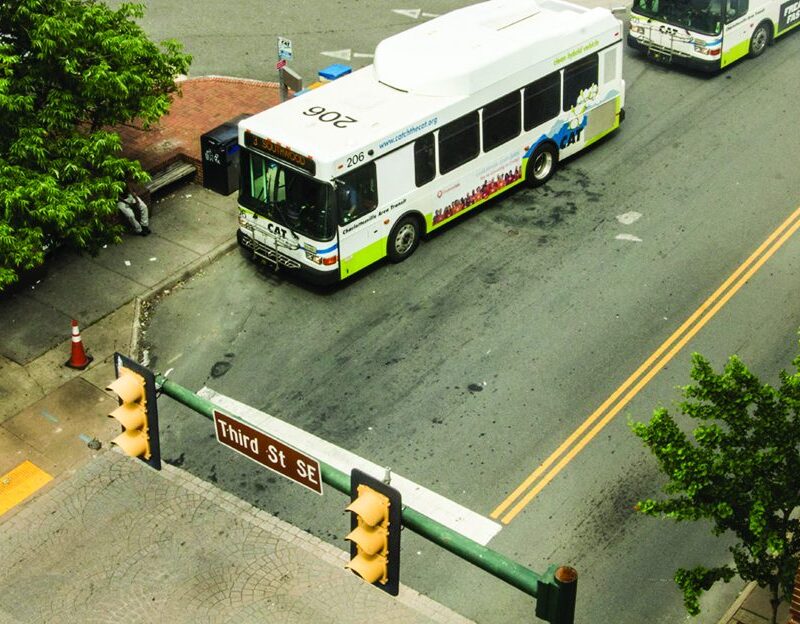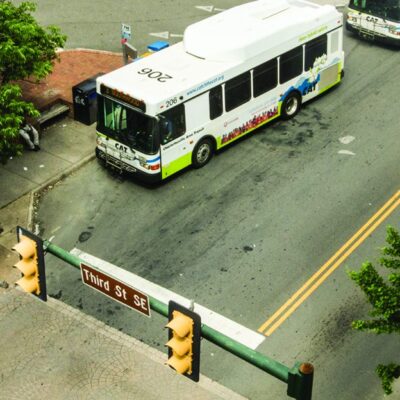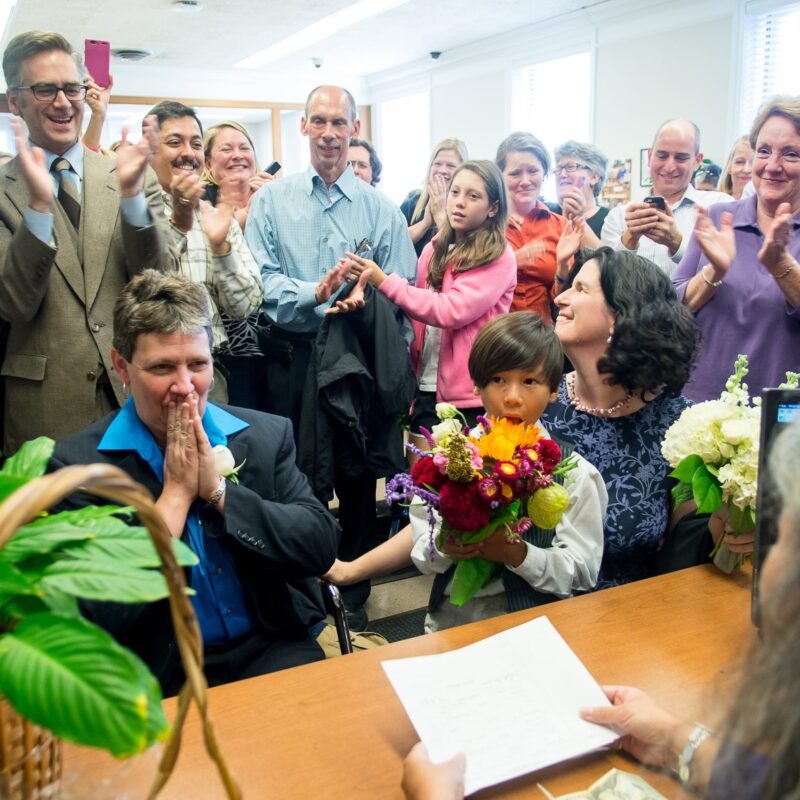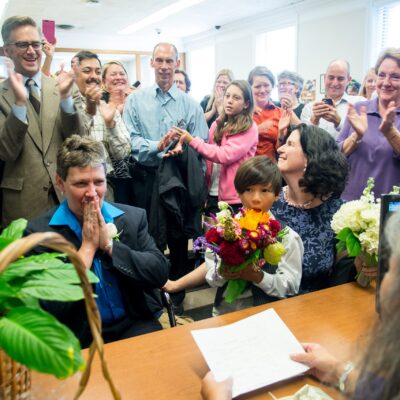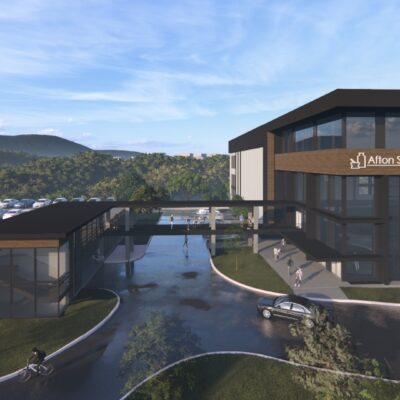There are no white-hot breaths of feedback, no gallumphing bass lines, bleeding from Jarrod Hood’s small wooden house in Belmont where local heavy metal band Horsefang practices a couple nights per week. Not yet. Instead, there are a few yips from Hank, a skittish hound, and Rigel, a squat bulldog, as Nicholas Liivak, Horsefang’s guitarist, lets me into the sprawling, uneven yard and towards the house. The other members of Horsefang—drummer Hood and bassist Aaron Sanders—recline against posts or in wooden chairs on their porch, sipping PBRs.
| Listen to River of Dead Horses by Horsefang:
Listen to "Plaguebreaker" by Horsefang: |
“[The house is] set back enough so the noise doesn’t bother anyone,” says Hood, unwittingly summarizing the band’s short career. The band’s last live performance was a roiling, volcanic spectacle barely contained within the tight clutch of the Outback Lodge basement, the band’s ninth show in as many months. A little over 20 people actively bobbed to Horsefang’s set, which featured five songs and lasted for roughly 45 lyric-less minutes—not standard fare in a town where you can’t stagedive without landing on a “singer-songwriter.”
 Everything’s heavy underground: The three rough riders in Horsefang churn out gritty riffs in their Belmont basement. |
“There is no lyrical consideration,” says Liivak. In place of lyrics is a concern for texture, tone and volume: “A fair amount of what I want things to sound like is literary, like the Cormac McCarthy of metal bands—gorgeous but evil.”
“We talked about this recently—we don’t have any hooks,” Hood says with a laugh.
“We might not have any lyrics, either,” adds Liivak, joining the joke. “And next time we might just play KISS covers. But we’re the type of band to play them backwards.”
Horsefang began roughly nine months ago with the demise of Richmond-based indie band (“Don’t call it that,” Hood says, feigning disgust) Mensa Select, a group that Liivak and Sanders started 14 years ago and that opened concerts for bands from art punks Les Savy Fav to indie-pop breakthroughs Death Cab For Cutie. Three years ago, Hood joined the group as a drummer; the band played more than 100 concerts across a few years and made a trip to Indiana to audition to no avail for Darius Van Arman, former Charlottesville resident and founder of the Jagjaguwar record label.
In the summer of 2006, Mensa Select decided to rethink its direction. Liivak began to write churning, distorted guitar lines—different from Mensa’s crisp rock—and started to share them with Hood and Sanders. “We had very little intent,” says Hood between swigs. “We just knew we wanted to play heavier.”
“Heavier” is why Liivak asked me to bring earplugs to the interview and, the group informs me as they finish their drinks and lead me to the back of the house, “heavier” happens—like Horsefang’s Outback Lodge shows—in the basement.
The basement has a low ceiling bisected by a long wooden plank and has the scorched oil smell of a Jiffy Lube. I spot at least 20 empty PBR cans and two empty 12-pack boxes scattered across a table a few feet from Liivak’s amp. I pop my earplugs in and each band member does the same; Hood’s are attached to a thin metal wire that wraps around his neck, to hold them in place as he drums.
Liivak stands on one side of the room and nods toward the wooden beam. “So we don’t have to look at one another,” he jokes, then asks if the other members have “their numbers.” Sanders turns to a page in a white notepad, then places it atop his bass amp while Liivak taps a small, metal box on his side of the wooden plank. Scribbled into the glinting surface of the box is a list
of numbers corresponding to key and rhythmic changes in a new song, “Imperial Skank.”
“Our songwriting process,” Liivak says, then turns inward, closing the Horsefang circle as Hood counts the group into the beginning of an older song, “River of Dead Horses.”
True to their word, it is heavy. The amplifier next to me starts to buzz and drone as Liivak reads Hood’s staggered tom “thwacks” and “duh-duh-duh-doomphs,” then takes his furnace-fired power chords up an octave into a squealing, smoky mess. A repeat through this first progression and Sanders helps Hood drive the tempo into a swampy crawl, Liivak’s guitar and Sanders’ bass slipping down a scale in minor steps until all three members are at a dead stand still. Then:
Doomph.
Screech.
Liivak alternates with Sanders and Hood as the tempo picks back up, establishing a tempo with blasts of feedback that Hood matches on his kick drum and cymbals. I scribble furiously in my notebook, beer cans rattling on the table beside me slightly as the tempo swings upwards and the texture of cymbals becomes less important, replaced by double-timed kick drums and power chords that align in half a minute of thrash and a finger-tapping interlude by Liivak. Sanders stretches his fingers out, grimacing slightly, and then rejoins Liivak stride-for-stride.
Duh-duh-duh-doomph.
Back to the beginning, I realize, and the sludgy power chords return before cutting out again.
Doomph.
Screech.
Done.
Stepping out of the basement feels like a welcome stroll into a walk-in freezer—cool, still and soundless. The night remains completely undisturbed, save for the two barking dogs, oblivious to the monstrous noise in the Horsefang basement.
